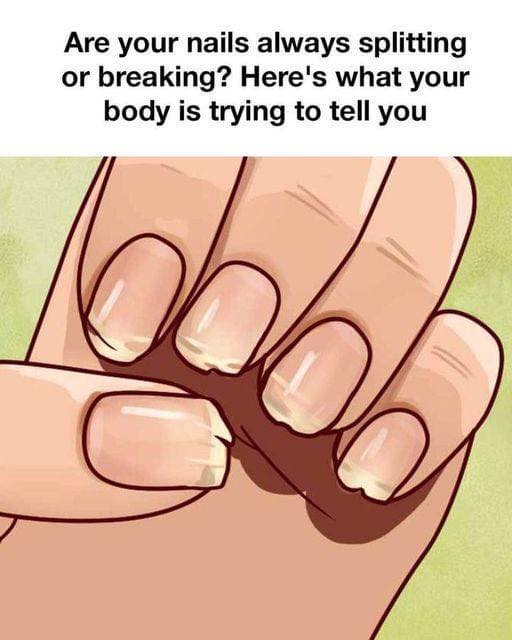Healthy and resilient nails are more than just a cosmetic feature; they are a window into your overall health. Often overlooked, nails can provide early indicators of nutritional deficiencies or underlying health concerns. If you experience frequent splitting, breaking, or unusual changes in your nails, these signs may be your body’s way of signaling that something is amiss. Recognizing these symptoms early can not only improve the appearance of your nails but also help you address potential health issues, enhancing your overall well-being and preventing complications.
Understanding the factors contributing to nail health is essential for making informed choices about your lifestyle, diet, and when to seek professional help. From nutritional gaps to environmental stressors and medical conditions, each factor plays a role in the health of your nails. By paying attention to these details, you can take proactive steps to maintain not just attractive nails, but a healthy body as well.

Nutritional Deficiencies
Nutrition plays a pivotal role in maintaining nail strength and resilience. Deficiencies in essential nutrients often manifest in the condition of your nails.
Biotin Deficiency:
Biotin, a B vitamin essential for the health of hair, skin, and nails, can significantly impact nail integrity. A lack of biotin may cause nails to become brittle and prone to splitting. Incorporating biotin-rich foods like eggs, almonds, cauliflower, cheese, mushrooms, sweet potatoes, and spinach into your diet can help strengthen your nails and promote healthy growth.
Iron Deficiency:
Iron is crucial for producing hemoglobin, the protein that carries oxygen to cells throughout your body, including those responsible for nail growth. Iron deficiency can result in brittle, misshapen nails. To increase iron intake, consider adding foods like spinach, red meat, lentils, and iron-fortified cereals to your meals.
Protein Deficiency:
Nails are primarily composed of keratin, a protein. A diet low in protein can weaken nails, making them more susceptible to breaking. Including lean meats, poultry, fish, beans, and dairy products in your diet can boost protein levels, supporting stronger nails.
Hydration Issues
Dehydration affects more than just your skin; it can also impact your nails. When the body lacks sufficient water, nails can become dry, brittle, and more prone to splitting. Drinking enough water daily is a simple yet effective way to keep your nails hydrated, flexible, and strong.
Environmental Factors
External factors often take a toll on the health of your nails, but small changes can reduce their impact.
Chemical Exposure:
Frequent exposure to harsh chemicals, such as those in cleaning products, nail polish removers, and detergents, can weaken nails over time. Using gloves when cleaning and choosing acetone-free nail polish removers can minimize this damage.
Weather Conditions:
Extreme weather, particularly cold or dry conditions, can dry out nails, leading to brittleness. Moisturizing your nails and wearing gloves in winter can provide a protective barrier against these harsh conditions.
Health Conditions
Certain medical conditions may manifest symptoms in your nails, offering clues to underlying health issues.
Thyroid Disorders:
Both hyperthyroidism and hypothyroidism can contribute to nail fragility. If you suspect a thyroid issue, a simple blood test can confirm the diagnosis and guide treatment, potentially improving nail health as well.
Psoriasis:
This skin condition often extends to the nails, causing pitting, abnormal growth, and splitting. Managing psoriasis effectively through medical treatment can lead to healthier nails.
Fungal Infections:
Fungal infections that affect the nail bed can result in discoloration, brittleness, and splitting. Antifungal treatments are widely available and effective in resolving these infections, restoring nail health.
Physical Stress
Daily habits and repetitive actions can also impact nail health. Using your nails as tools to open cans or perform similar tasks can lead to both acute and long-term damage. Trimming nails regularly and avoiding unnecessary strain can prevent splitting and breaking, ensuring your nails remain strong and healthy.
Age-Related Changes
As you age, your nails naturally become drier and more brittle. This is due to a reduction in the natural oils that keep nails hydrated and resilient. To combat these changes, consider incorporating omega-3 fatty acids into your diet through foods like salmon, walnuts, and flaxseeds. Additionally, moisturizing your nails regularly can help them retain their strength and flexibility.
Nails are not just a superficial feature; they are an integral part of your body’s health system. By paying attention to your nail condition, you can glean valuable insights into your overall health. Addressing nutritional deficiencies, protecting your nails from environmental damage, staying hydrated, and seeking treatment for underlying health conditions are all critical steps in maintaining optimal nail health.
If nail problems persist despite your efforts, consulting a healthcare professional or dermatologist is advisable. They can help you understand the root cause of your issues and recommend treatments tailored to your specific needs. Healthy nails are not just about appearance—they are a reflection of your body’s overall condition. Taking proactive steps to care for them can lead to a healthier, more balanced lifestyle.





